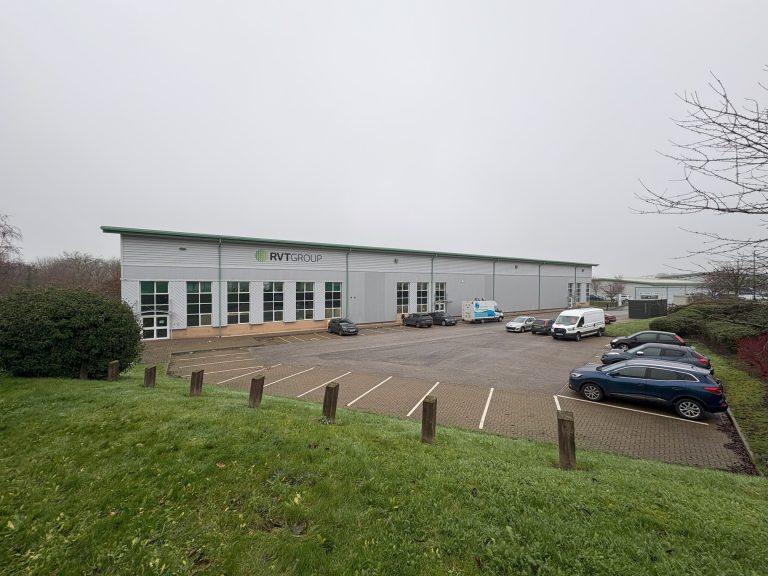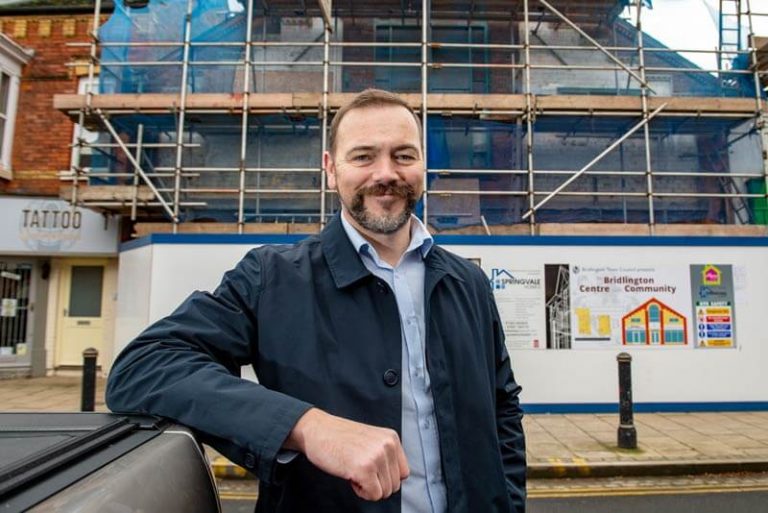2025 Business Predictions: Gareth Singleton, regional managing partner at BDO in Yorkshire & the Humber
It’s that time of year, when Business Link Magazine invites the region’s business leaders to offer up their predictions for the year ahead.
It has become something of a tradition, given that we’ve been doing this now for over 30 years.
Here we speak to Gareth Singleton, regional managing partner at BDO in Yorkshire & the Humber.
Much like Leeds United Football Club, the number of uncertainties faced during the second half of 2024 have reduced, providing a more stable platform as we enter 2025. The outcome of the UK and US elections, and the recent Autumn Budget, are now known and, regardless of whether businesses are happy or not with the results, they can plan ahead with increased certainty. While there does remain uncertainty around US trade tariffs, recent reports suggest the impact on UK exports could be significantly less than others.
While Leeds United has found some form and is ending the year in confident mood, we expect the regional business community will need a little longer to gain confidence during 2025. The expected reduction in interest rates throughout 2025, coupled with the easing of uncertainties referred to above, should lead to an increase in confidence and a commitment to invest in strategic growth plans moving forward. This will undoubtedly help regional sectors, such as manufacturing. While 2025 is likely to bring with it continued growth in the region, we do expect businesses to end the year with a more confident outlook than how they started, leading to a more meaningful growth agenda in 2026.
The productivity puzzle remains a real challenge for most sectors in the region and across the UK. In Yorkshire, the professional services sector, including financial services, is a significant part of the local economy. We expect 2025 to be the start of a revolution for this sector, in terms of AI and technology, driving genuine productivity gains which should benefit the region more than most, given the makeup of the businesses in the local economy.
Wakefield Council to launch commission considering skills and educational needs of the district
Wakefield Council is set to launch a commission to consider the skills and educational needs of the district.
Created in partnership with the West Yorkshire Mayor, the commission will be carrying out a study to identify ways of ensuring people have the right skills to get them into the kind of employment that will transform the economy of West Yorkshire.
Chaired by Professor Sir Chris Husbands, former Vice-Chancellor at Sheffield Hallam University, the Wakefield Futures Commission will meet for the first time next week.
Professor Sir Chris Husbands said: “Wakefield has a fantastic geographical location and great transport connections. It has amazing people, a proud history and lots of great assets. But higher-level skills provision isn’t in place – and economic growth depends on people.
“If we can design and implement the right route to higher skills and create a more highly skilled population, then it’s a win for individuals, it’s a win for the economy and it’s a win for the Wakefield district.
“This study will look at what Wakefield Council can do, what the West Yorkshire Combined Authority can do, along with what current skills providers and colleges can do. As well as what national government can do to be better placed to meet the challenges of the future.
“By looking at the place-based challenges and bringing together highly thoughtful people to find solutions, we expect this study to be of interest to the Government.
“This is a serious attempt to make a real difference to the economy and draw on local experience to drive national policy change.”
The commission brings together industry experts, from education and economic policy. Between now and June 2025, it will review and carry out research to determine how the district can support more local people to access high skilled jobs and create and attract high-level skilled workers to the area. These are both essential for sustained economic growth.
The place-based study will help to create a framework for a seamless skills system. Once complete, the work will help shape Government policy at a national level.
Cllr Denise Jeffery, Leader of Wakefield Council, said: “We want the very best for our residents. Making sure we can offer opportunities to gain the skills needed for higher paid jobs, as well as bringing investment into our district, remains a top priority.
“We want residents to have access to great higher education options on their doorstep. That’s very important for us to help retain the amazing talent we have here in the district.
“The Commission will help us to make our city even more competitive as a place to learn and do business.”
Tracy Brabin, Mayor of West Yorkshire, said: “Wakefield is a brilliant district with a bright future – from major investments in housing and regeneration, to the expansion of world-renowned cultural assets like Production Park.
“Yet for too many in Wakefield, a lack of higher education is holding them back from flourishing, with lower than average degree-level attainment compared to the rest of West Yorkshire.
“The findings of this commission will form the building blocks for a stronger, brighter region, where everyone can get the skills they need to succeed and put more money in their pockets.”
Wakefield is England’s largest city without a university. It faces significant challenges in developing and retaining higher-level skills among its residents.
With a population of more than 300,000 Wakefield is below the national and regional average for residents with higher level qualifications, above A-level.
According to the latest data from the Office for National Statistics, only 28.8% of Wakefield’s population aged 16-64 holds qualifications at Level 4 or above. This figure is substantially below the national average of 46.7% and the Yorkshire and Humber regional average of 41.2%.
Wakefield Council and the West Yorkshire Combined Authority are committed to addressing this. Earlier this year Wakefield was awarded UNESCO Learning City status and joined the Global Network of Learning Cities (UNESCO GNLC).
Membership to the network shows the Council’s commitment to ensuring a learning system which improves opportunities and provides access to employment, along with education and training, is available to all.
Understanding and responding to Wakefield’s higher-level skills and education challenges is a priority for the West Yorkshire Mayor Tracy Brabin, who has pledged to build a “region of learning and creativity” where everyone can get the skills they need to succeed.
At a meeting of the West Yorkshire Combined Authority on 12 December, Mayor Brabin unveiled a ten-year, £7 billion Local Growth Plan, which was approved by Cllr Jeffery and other regional leaders.
It aims to halve the number of people in the region with low or no qualifications through a universal skills system, with clear pathways for people of all ages to access the high-quality education and careers of their choice.
The findings of the Wakefield Futures Commission will inform this system, helping ensure that everyone across the region can upskill and retrain throughout their lives, so they can follow their passions, boost their household incomes, support local businesses, and contribute to a growing economy.
The first meeting of the Wakefield Futures Commission is set to take place next week.
Output volumes fall in final quarter of 2024 as growth expectations weaken further
Manufacturing output volumes fell at the fastest pace since mid-2020 in the quarter to December, according to the CBI’s latest Industrial Trends Survey (ITS). Manufacturers expect another steep drop in output over the next three months.
Total and export order books deteriorated sharply relative to last month, with the volume of total orders falling to its weakest since late 2020. Against a backdrop of weak demand, manufacturers’ stocks of finished goods remain relatively high, at levels last seen during the early stages of the Covid pandemic.
Meanwhile, expectations for selling price inflation picked up noticeably in December, with the rate of selling price inflation during the next three months expected to be comfortably above the long-run average.
The survey, based on the responses of 331 manufacturers, found:
- Output volumes fell in the three months to December (weighted balance of -25%, from -12% in the quarter to November), the steepest decline since August 2020. Manufacturers expect output to fall again in the quarter to March 2025 (-31%), with expectations weaker than at any time since May 2020.
- Output decreased in 15 out of 17 sub-sectors in the three months to December, with the significant fall driven by the furniture & upholstery, glass & ceramics and motor vehicles & transport equipment sub-sectors.
- Total order books were reported as below “normal” and deteriorated markedly relative to November (-40% from -19%). The level of order books in December was the weakest since November 2020 (and far below the long run average of -13%).
- Export order books were also below “normal” in December (-37% from -27% last month). This was also below the long-run average (-18%).
- Expectations for average selling price inflation picked up in the quarter to December (+23% from +11% in November), with the balance of manufacturers expecting prices in the quarter ahead to rise above the long-run average (+7%).
- Stocks of finished goods were reported as more than “adequate” in December and to a similar extent as in November (+20% from +21%), which was the highest reading since August 2020. Stock adequacy stands well above the long-run average (+12%).
Rotherham expansion for industrial specialists
Two growing businesses have expanded into a Rotherham industrial estate.
Specialist hire company RVT Group, which offers tailored solutions for dust control, fume extraction, ventilation, noise barriers, water treatment, environmental monitoring and climate control, has enlarged its depot facilities after taking 35,000 sq ft of industrial space at Vector 31 in Waleswood.
The company, started in 1993, had outgrown its existing unit in Chesterfield, while existing tenant Preformed Windings, which manufacture high-voltage diamond coils for high-voltage motors and generators, has relocated into a 10,000 sq ft unit at the industrial scheme.
Agents Knight Frank secured the unit for RVT, which has sites across the UK including two offices in Dartford plus branches in Northampton, Chester and Scotland, and also negotiated the move for Preformed Windings, which has more than 50 years of experience of partnering major OEMs and rewind shops worldwide.
Harry Orwin-Allen, surveyor in the Knight Frank Sheffield office, said: “Vector 31 is a prime South Yorkshire location and offers occupiers high grade industrial and warehouse units built to modern specification. Both companies needed extra capacity in high quality accommodation, and Vector 31 fitted the bill.”
Marketing agency races to Joseph’s Well
CreativeRace has relocated to Joseph’s Well, the historic office complex.
The integrated marketing agency is taking up 5,209 sq ft of workspace in a tailored ground floor space steeped in history, once home to iconic music venue, The Well.
Joseph’s Well, managed by J Pullan & Sons Ltd, was originally a 19th Century mill.
Gordon Bethell of CreativeRace said: “As our current lease came to renewal, we took the opportunity to reflect on our future requirements and focused on a workspace that inspired creativity and content creation whilst serving our functional needs.
“Taking such an iconic space as The Well where legendary performances from the likes of The Killers, Kaiser Chiefs and Keane all appeared felt like a celebration of independence.
“A key draw to the space was the bespoke design and fit out service from Pullans’, whose team blended original historical features, re-purposing the original dance floor as a dedicated photography studio and throughout the whole re-fit kept an industrial chic look and feel.”
Bruce Strachan, Property Director at Pullans, added: “We are delighted to welcome CreativeRace to our landmark building and have worked closely with them to design a dynamic, creative environment that meets their current and future needs.
“It’s a great example of how we continue to adapt and evolve our spaces to support modern businesses, whilst taking a sustainable approach and recycling and repurposing materials.
“The demand for unique fit-for-purpose office space in Leeds remains robust, and our investment in Joseph’s Well reflects both the growing confidence in the local economy and the evolution of workspaces as businesses are favouring a return to the office.”
Carter Towler and WSB are joint agent marketing agents for Joseph’s Well. Carter Towler also acted for CreativeRace in this letting.
2025 Business Predictions: Michael Porter, Senior Director, CBRE’s National Valuation & Advisory Services team in Leeds
It’s that time of year, when Business Link Magazine invites the region’s business leaders to offer up their predictions for the year ahead.
It has become something of a tradition, given that we’ve been doing this now for over 30 years.
Here we speak to Michael Porter, Senior Director in CBRE’s National Valuation & Advisory Services team in Leeds.
2024 had its fair share of ups and downs, but from an economic point of view it turned out to be better than expected. Inflation fell sharply in Q1 and was near, or at target, for much of the rest of the year, and consequently the Bank of England started its interest rate cutting cycle.
Overall, the economy grew by around 1%. We now appear to be firmly on the road to recovery, and we forecast the growth trajectory to continue in 2025, boosted by further interest rate cuts.
Looking through a commercial real estate lens, it is becoming increasingly evident that the market reached a trough in 2024. Our Monthly Index is showing embryonic signs of a turning point, which we expect to continue and gather more strength in 2025.
As we leave a year where investment volumes remained at historically low levels, a rise in values, alongside lower interest rates and lower costs of debt, will stimulate a pick-up in investment in 2025 of around 15%.
Self-storage company expands footprint with Grimsby site
A self-storage company is building its presence across the country with a new site in Grimsby.
Kangaroo Self Storage has purchased a large former retail warehouse on M Park Alexandra, the retail park in Grimsby. The site was previously occupied by home improvement retailer, Wickes. The large format building occupies a prime site on the Retail Park and already has B8 consent, enabling the site to operate as self-storage with immediate effect.
The store will deliver a net floor space of 80,000 sq ft, trading over three levels. When fully fitted, the Grimsby store will be one of the storage company’s largest stores.
Gareth Dougherty, Acquisitions Manager at Kangaroo Self Storage, said: “M Park Alexandra is the perfect location for trialing our new retail park presence. It’s a very visible and convenient site with easy access and ample parking.
“As the need for storage becomes more lifestyle-driven, a site like this supports our ambition to bring storage directly to our customer base. We are delighted that M Park Alexandra landlords have been flexible and forward thinking – considering the current and future uses of sites like this.”
Chris Stevens, CEO at Kangaroo Self Storage, said: “Strategically, we see this as a significant transaction in the future repurposing of retail into other use classes. We expect to do more transactions like this as Kangaroo continues to expand its presence in the UK.”
The transaction was led by George Kearney at LCP, part of M Core, the owners of M Park Alexandra. Their advisers were Henry Phipps of Edgeley Simpson Howe and Osborne Clarke.
George Kearney, Senior Asset Manager at LCP, said: “We are thrilled to support Kangaroo Self Storage in developing their retail park presence at M Park Alexandra. With its prime location and excellent infrastructure, this site is perfectly positioned to serve the Grimsby community’s growing need for flexible and accessible storage solutions.”
Kangaroo Self Storage was advised by MBM Commercial, Temple Bright and JLL.
Fire and Rescue Services change rules on response to automatic fire alarms
Fire & rescue services across the UK have implemented a new policy regarding response to automatic fire alarms in certain types of commercial premises.
The changes impact many businesses, says PIB Insurance Services. IN essence fire and rescue services won’t turn out to automatic fire alarm calls during the day unless someone calls and confirms that there actually is a fire.
UK fire and rescue services face significant operational strain due to the large number of automatic fire alarm calls. These calls often result in unnecessary deployments, impacting resource allocation and readiness for genuine emergencies.
Automatic Fire Alarms go off and alert the fire service, but this havens even when there is no visual sign of a fire. They can be triggered by things such as steam, dust or not being maintained properly. West Yorkshire Fire and Rescue says it will no longer be responding automatically to AFA’s in non-sleeping risk premises. We will require visual confirmation of a fire before responding to alarms at these premises.
On average, over the last five years, these false alarms accounted for around a third of all West Yorkshire Fire and Rescue operations – more than 7,000 mobilisations a year where no fire was found. Fewer than 2% of these fire alarms result in a fire being found.
‘We need £1m compensation for road delays’, Council tells National Highways
News that Hull’s £350m Castle Street project has been delayed until Spring 2026 by National Highways has been met with dismay and demands for a £1m compensation package.
The Hull and Humber Chamber says the city’s traders and motorists now face another year of delays and challenging trading conditions as access to and from the city continues to be hampered.
National Highways say they have encountered some extremely challenging ground conditions near the Humber that could not have been anticipated before the scheme began.
Patience is rapidly running out as traders and drivers now face another year of disruption and delays, says Chamber Chief Executive Dr Ian Kelly. “This is not the Christmas present we wanted from National Highways, and this terrible news will put Hull’s business community under even more pressure at a time when many are struggling to cope with increased trading costs after the recent Budget.
“The Chamber is therefore calling for National Highways to set aside a £1m fund to help local businesses survive for the further 12 months this work is now going to take after all the delays and damage caused to the businesses community in Hull city centre.
“We thought after all these years the end was in sight, and now we have to endure another 12 months of traffic chaos which deters people from coming into the city centre.
“I’m not sure what they expected to find when they dug down below the water table, but surely after all the years of planning, there shouldn’t have been any surprises!
Kathryn Shillito, Exec Director of Hull’s Business Improvement District added: “Although we recognise the works are essential, we are disheartened to learn that completion is now scheduled for Spring 2026. Hull city centre businesses have been both accepting and patient but in exceptionally challenging times, this news comes as another blow. HullBID has tried its utmost to entice visitors into the city with events and marketing campaigns, whilst the businesses have gone the extra mile to keep their custom. Financial support would be welcomed to continue pushing out the message that Hull city centre is very much open for business.”
Jim Harris, the Centre Manager for St Stephen’s Shopping Centre, and HullBID chair, said: “This is very disappointing news. City Centre businesses have been heavily affected by the Castle Street scheme, and a lot of hard work has been done to mitigate the issues, but we could really do with some financial help if this is going to continue for yet another year!”
Self-employed tradespeople achieve record weekly earnings, says Hudson Contract
Self-employed tradespeople achieved record weekly earnings last month, with average payments reaching £1,053 according to the latest Pay Trends analysis by Hudson Contract.
The company says October’s figures show a month-on-month increase of 0.5% and year-on-year growth of 2.6%, despite broader economic headwinds.
Monthly earnings growth was strongest in roofing, where rates increased by 5.6%. Demolition and surfacing subcontractors followed with robust rises of 5 and 4.1%respectively.
Regional analysis shows the North East leading growth at 3.7%, with the East of England and South East following at 2.4 and 2.1%, reflecting continued strength in these key markets.
Hudson Contract MD Ian Anfield said: “As it has been all year, demand for good skilled labour remains high. Earnings are continuing to increase at a measured pace.
“We’re hopeful the government’s planning reforms and housing market stimulation measures will materialise next year. Sir Keir Starmer has promised ‘a golden era of building’ to improve the country’s prosperity. Our numbers are showing steady growth, which suggests the market might be moving in the right direction.”












